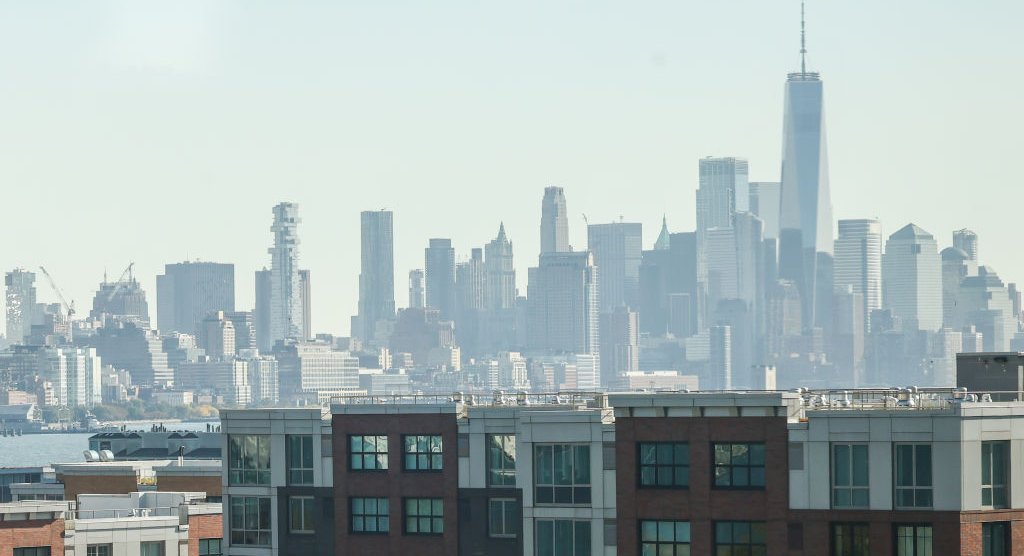A deepening housing shortage is costing New York City nearly $2 billion in annual tax revenue while driving residents out of the five boroughs and locking others into homes that don’t fit their needs, according to a new report released Thursday.
The analysis by the Citizens Budget Commission outlines three overarching problems spurred by New York City’s scarce housing supply, including soaring rents and sale prices; revenue-depleting outmigration; and dramatic economic consequences for the city and even the nation.
Closing the “housing gap” by building hundreds of thousands of new homes could allow the city to gain nearly $2 billion in tax revenue each year to fund vital services, said the report’s author Sean Campion.
“Housing scarcity is bad for New Yorkers, it’s bad for the economy and it’s bad for the city’s fiscal health,” Campion said. “For New Yorkers, housing scarcity degrades their quality of life.”
Just 1.4% of New York City apartments were vacant and available to rent last year, the lowest rate in decades, according to the city’s most recent housing survey. The shortage was even deeper for relatively affordable accommodations: less than 1% of apartments priced below $2,400 a month were available and less than 0.4% under $1,100 were empty and ready to rent, the survey found.
The CBC report highlights a number of recent analyses suggesting New York City and the surrounding metropolitan area need more than 500,000 new homes to keep up with demand and accommodate people moving into the region. One recent estimate from the Regional Plan Association finds that building additional housing could allow the metropolitan area to increase its gross regional product by roughly $651 billion over the next decade, which would drive the estimated annual tax gains.
“People leaving the city are those households and adults mostly in their prime working ages, Campion said. “They take their property, their personal income tax, and they take their sales tax revenue with them.”
New York City lost out on $259 million in income tax revenue and another $50 million in sales taxes in 2022 after 52,600 more households moved out of the city than moved in, according to the analysis by the CBC.
While the housing shortage is driving many people — and their spending — out of the city, it’s locking hundreds of thousands of other New Yorkers in homes that don’t suit them but that cost less than what they’d find on the open market, the report says.
Just under 15% of New York City renters moved into their current apartment within the last year, compared to about 25% nationwide, according to CBC’s review of 2022 data. Rent regulations that limit monthly increases encourage people to stay put, contributing to the lower rate of moves, but a lack of housing supply means tenants also have few other options in their price range, Campion said.
“People tend to stay longer in apartments that may be too big for them because they have nowhere else to go,” Campion said. “They can’t afford to move, even if you have two adults whose kids have left, but they’re still in a three- bedroom apartment.”
A chronic lack of new income-restricted apartments with more than two bedrooms is also exacerbating the problem, according to a Gothamist analysis of city-financed affordable housing data.
Campion said the solution to the problem is simple: Build more housing citywide. He cited strategies like changing land use restrictions in low-density neighborhoods to allow for slightly larger development — a goal of Mayor Eric Adams’ “City of Yes” zoning reform plan.
“But that’s only the first step,” he said. “It’s really going to take a broad approach to actually fixing this.”
Getting to the solution is proving anything but easy in the face of opposition from local communities, demands for more new housing with rents that are attainable for the neediest low-income New Yorkers, and a push from developers to recognize the cost of building while also maximizing profits through higher rent and sale prices.
Last year, Gov. Kathy Hochul proposed measures to penalize municipalities that don’t build new housing, but backed down in the face of opposition from suburban towns and low-density sections of New York City.
Progressive lawmakers have proposed a new agency tasked with constructing and running “social housing,” where people of various income levels pay 25% of their earnings for rent.
New York state lawmakers included some measures to fuel new housing development in the most recent budget, like a property tax break for developers who reserve some units for middle-income tenants, but mostly replicated the laws that have existed for years.
Stewart Sterk, the director of Cardozo Law School’s Center for Real Estate Law & Policy, said the state has to pursue bolder measures to tackle the housing crisis, even if they’re unpopular.
“The principal thing leading to higher housing costs is lack of supply,” Sterk said. “The legislature is focusing on the small things it can control without making people upset. They need to put the city in a position where more housing can get built.”
